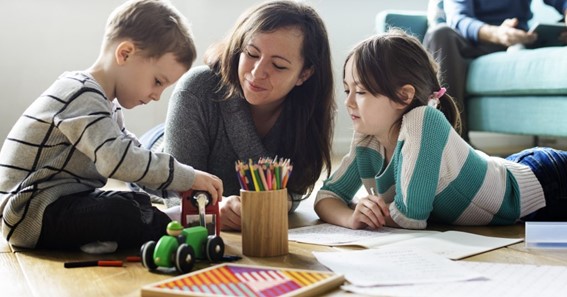Many children with disabilities are in need of foster homes in the UK. A disability may be mental or physical. Sometimes it involves a child with special health needs.
Many foster carers are afraid to take on a disabled child, but those that have done so only have positive things to say. They also claim that the rewards are immense and that they grew as people and learnt a lot from the process of caring for a disabled child.
We take a look at what is involved, what training you need and what foster carers have said of their experiences with looking after these special-needs children.
Who is Eligible to Look After a Disabled Foster Child?
You need to be at least 21 years old to be considered for taking a disabled foster child into your home. A foster carer need not own the home they live in, but they must have a spare bedroom for the child. Being single or in a same-gender partnership will not disqualify you. Age at the upper levels is not a factor provided you have the stamina and health to care for the child that has been placed with you. You will need to have the time to look after a disabled child.
Agencies sometimes make long-term placements of disabled children in care to give them as much stability as possible, but the type of placement will be dependent on the child’s needs. They may need to be in foster short term due to a parent’s mental health has taken a decline, but the hope is to return the child to their birth family once the parent is able to meet their needs. They may also provide regular respite for a family.
What is Involved in Looking After a Disabled Foster Child?
You will receive specially tailored training to equip you to look after a disabled child. This can take six months, but it will boost your confidence in having the skills to do a great job. You will have to go through the same screening process as all other foster care applicants.
Even without experience in caring for a disabled child, you should not rule out the possibility of these placements. The training is designed to close any gaps in knowledge and skills that you might feel make you unsuitable. However, those who already have some experience under their belts are sought after too.
What Foster Carers Say about their Experiences with Foster Children with Disabilities
One volunteer who currently cares for two children with cerebral palsy has been fostering as a single person for more than a decade and a half. At almost 60 years of age, she stated that even if your home is not big or you lack experience, you should not count yourself out. It is perfectly possible to care for disabled children and give then a wonderful childhood.
She admitted that she was extremely nervous with her first child. However, the experience itself quickly dissolved her fears. Her advice is to learn from the foster child as each one is unique. This leads to a strong bond forming between the foster child and the carer. She also suggests strongly that foster carers should focus on the child’s abilities and not what is beyond them.
The experience has enriched the lives of her and her biological children and taught them all to be more compassionate in general. If this has inspired you, contact an agency today. When you find out how to become a foster parent, you can include your interest in fostering a child with disabilities.
Respite Care
Foster parents, especially those looking after disabled children, need a short break from time to time. The agency arranges a respite carer who can look after the same children when their full-time carers are taking a rest. This expands the child’s experiences while maintaining stability for the child.
Make a decision to care for those in need and enhance your own life simultaneously.







